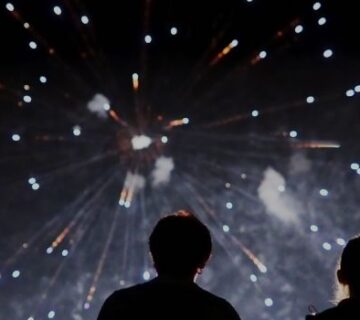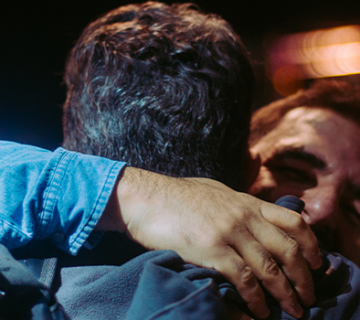«Since Christmas is regarded by so many as one great celebration among many, more sumptuous than sacred, it is good to look back on some of the authentic sides of the event.
There is an abysmal difference between the birth of a mighty earthly potentate of which the ancient world dreamt and the hidden and unnoticed birth of Jesus. And it is this contrast that marks with infinite and unforeseen originality the birth of Christ the King, born of a poor maiden in a stable cold and bare.
He really didn’t look like a God.
The start of his revolution in this way provides no prideful aspect, but only humility, for drawing the sons of God to Heaven, beginning with those who slept in the dirt – the slaves, the unemployed, the outsiders: the scum.
With this tiny infant, love and freedom were born. This is the endless discovery.
The universal love which he teaches will annihilate the system of co-existence largely comprised of political arrogance, abuse of authority, idle usury, contempt for work, degradation of women, corrosive envy as the basis of a system which is imposed on millions of slaves, people without rights, truly the living dead.
Of course, for those who are grafted into this system, proclaiming such a tiny infant, is total madness, inconceivable and it could cost you your head: “You will be hated by all nations because of me.”
Blessed are the poor. And blessed are those who become poor in order to help the poor. Blessed are you who are now hungry. . . but woe to you rich.”
Imagine the rage, the scandal of those for whom money was the supreme good and a blessing from God. They went on killing each other only to possess a few more acres than the ones they already owned. They unleashed riots and created demagogic uprisings and were taken by swollen livers and heart attacks in order to puff up their profits. “Love your enemies, do good to those who hate you. . . To those who strike you on the right cheek, offer the other as well. . . Give to those who ask, and ask nothing in return. . . Your ancient ancestors said: Do not murder: whoever murders will be brought before the judge. . . But I say to you: whoever grows angry with his brother will be brought before the judge. . .”
The greatness of this tiny infant appeared threatening to the honor of the soldiers and the war industries; whereas not hating your brother is equivalent to putting an end to fighting, faction and violence. This greatness would turn society – poor us! – into a peaceful coexistence.
Living in peace would allow us to make every day Christmas. And this is the revolution of Christ: opposed to the curse of death; continually making us to be reborn.
And so the greatest commandment – he said – is to love the human person, and it is the way to love God. Love others to the point of giving our lives for them, not to the point of killing them.
This, briefly, is the meaning of Christmas for humankind, granted to us in order to raise us to divinity. It changes our past way of life with the end of wars, ugly passions and greed. It is the beginning of universal love, which makes “all one” and allows for no division of caste, class, or politic. With his life and death Jesus preaches and teaches life. But evildoers don’t want life; they want death. And so they have been working with united effort today, with atomic weapons, the poisoning of the environment, anarchy in the fields of the distribution of oil and food supplies, a fitting end for humankind.
Many delude themselves playing with mythologies. They love peace and come up with war treaties; they seek economic equality, as with class hatred they enliven conflict and trigger disorder and unnecessary strikes that bring harm to ordinary citizens. They awaken (. . .) the desire for a supposedly “strong” regime, believing that this will enable them to live in peace.
In keeping with Christmas we celebrate with cake if it helps to inspire love; but above all we celebrate reconciliation, which puts an end to diseases of the spirit and brings you more health. We celebrate in gratitude to the Lord and to Mary who have suffered in order to teach us and help us to put an end to our suffering».
In: «Città Nuova», 1974, n.24.


 Italiano
Italiano Español
Español Français
Français Português
Português


